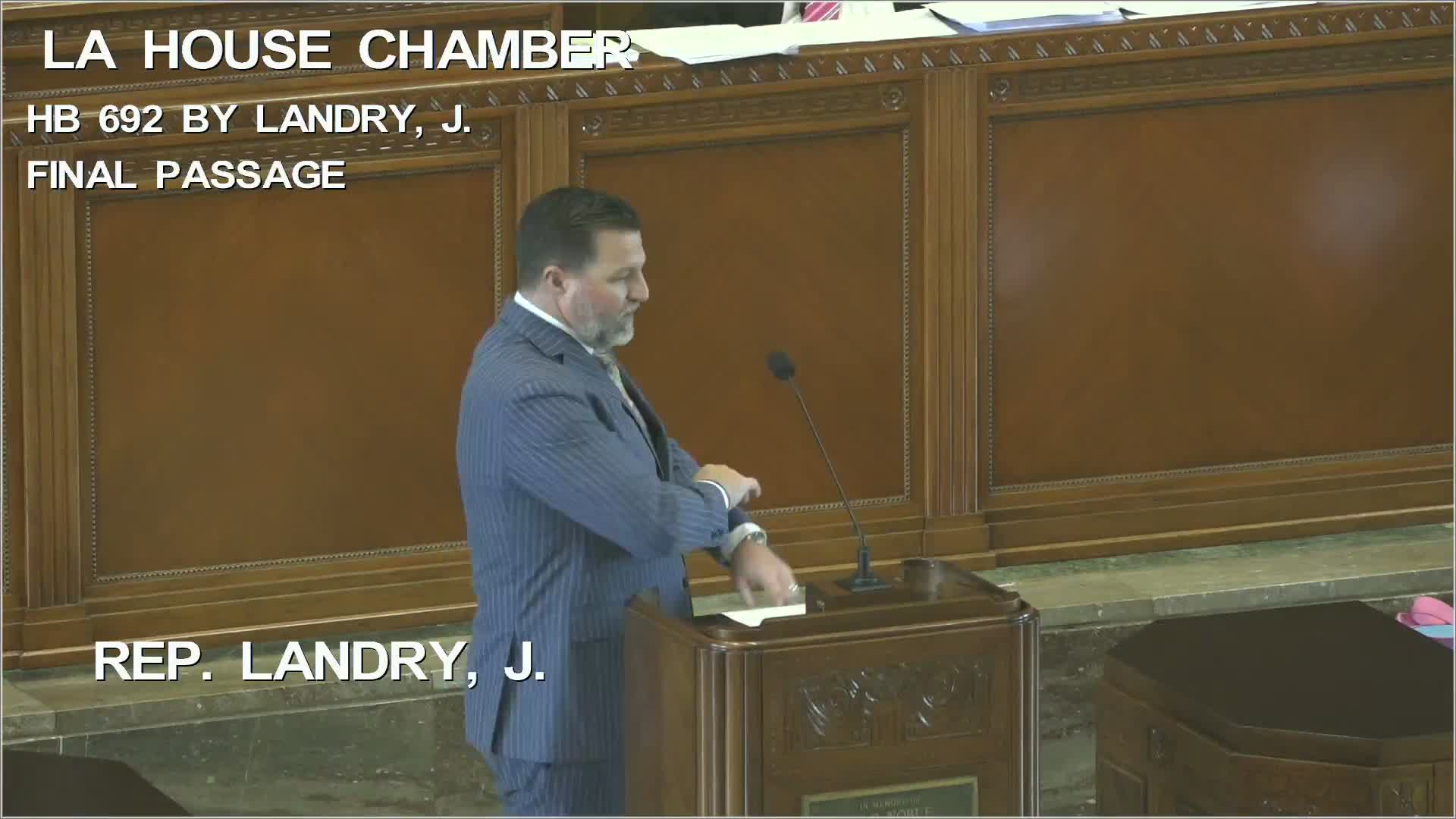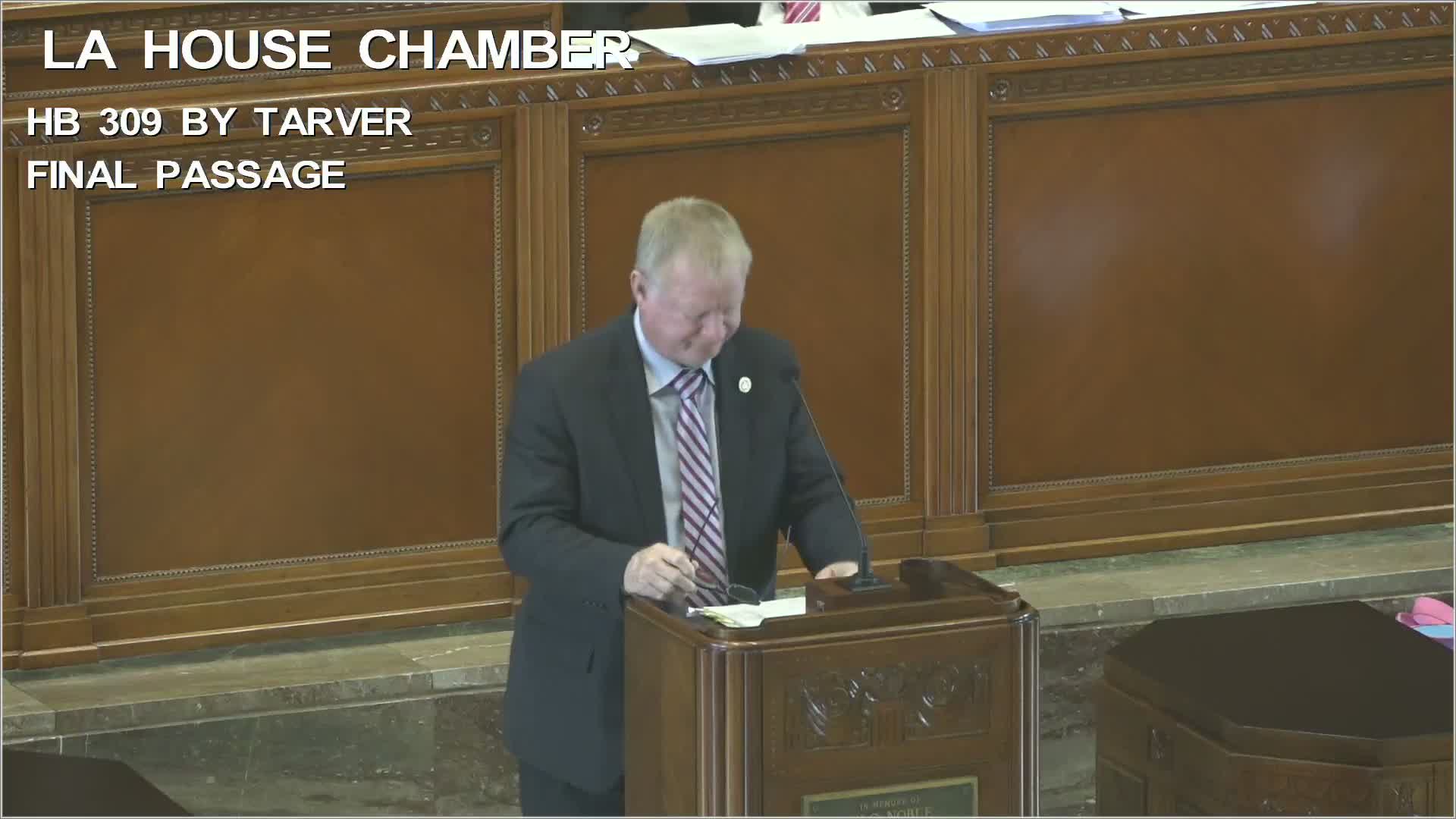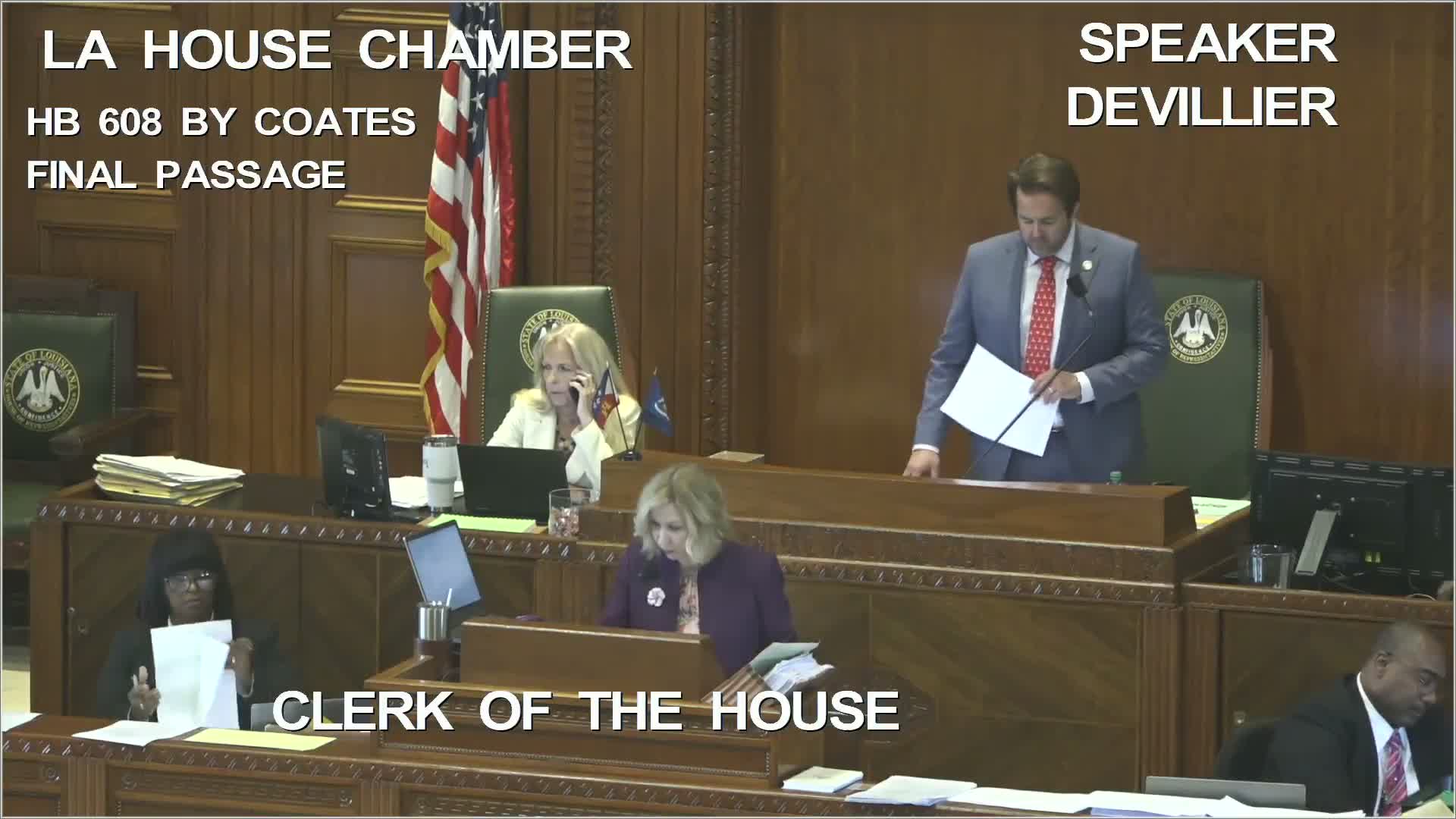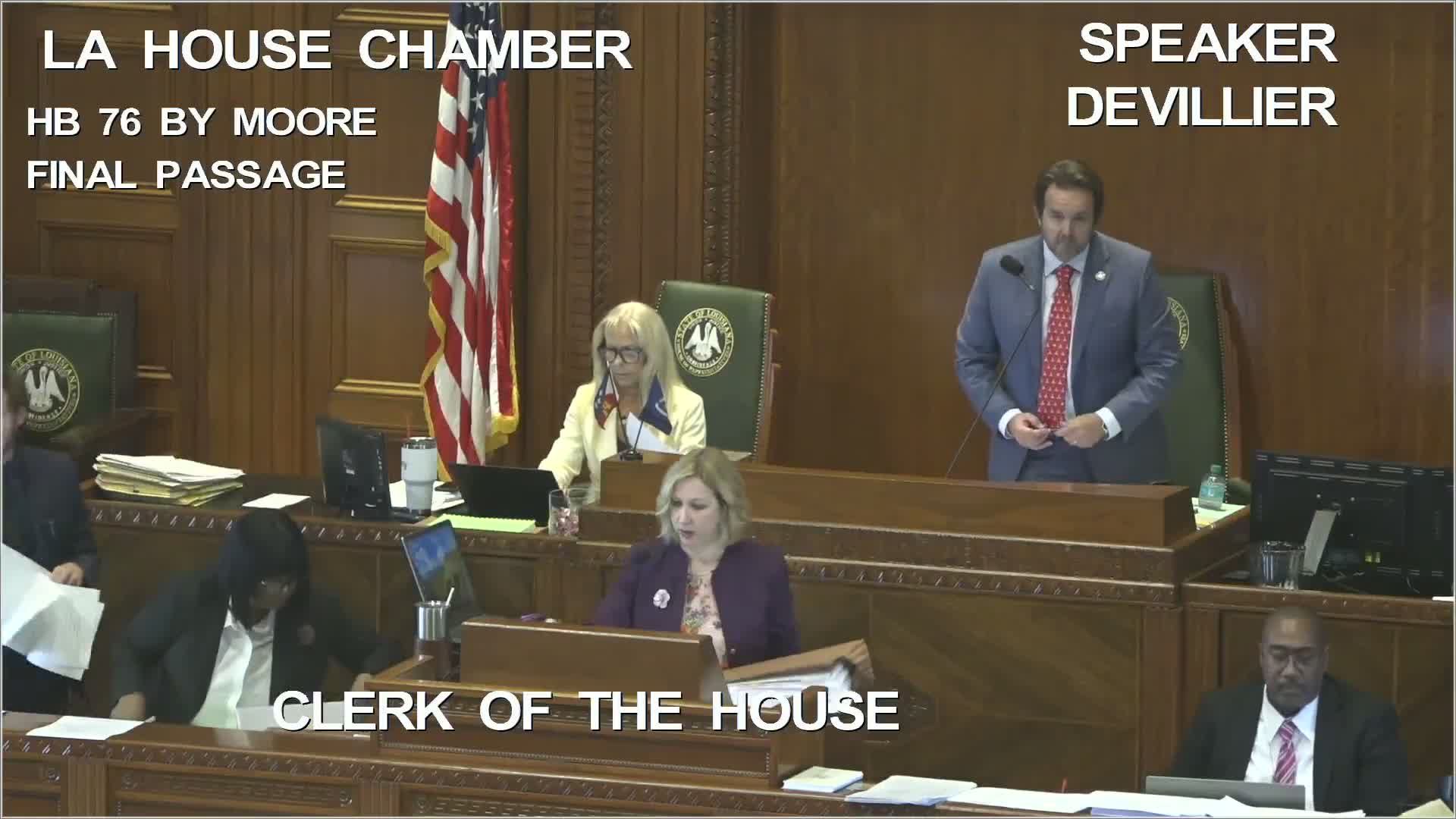Article not found
This article is no longer available. But don't worry—we've gathered other articles that discuss the same topic.

House approves bill defining 'reliable' clean energy sources and prioritizing grid resilience

House approves measure to separate appropriations for nongovernmental beneficiaries from general spending bills

House defeats bill that would ban weather 'geoengineering' projects above Louisiana

